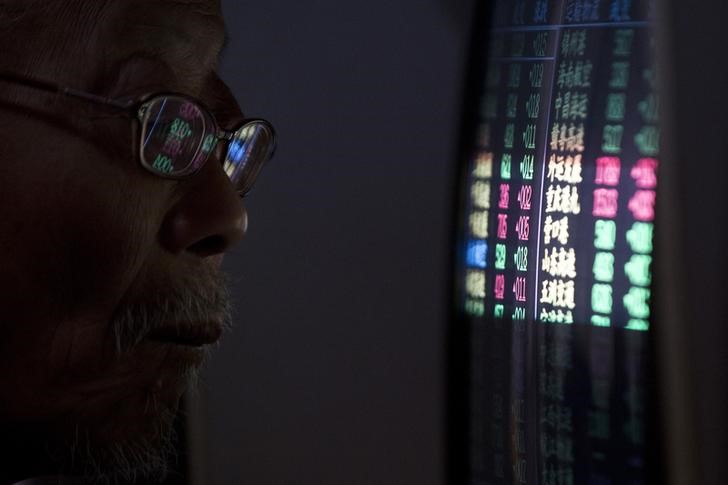Investing.com - Asian stocks were trading within a narrow range on Tuesday as investors mulled over the new political uncertainties in European markets. These uncertainties arose following the right-wing gains in the elections and a sudden poll in France that revived concerns about the integrity of the bloc.
The moves were modest with MSCI's broadest index of Asia-Pacific shares outside Japan dropping 0.4% in thin trade, and Chinese blue chips falling 0.7%. In contrast, Japan's Nikkei increased 0.3%, and South Korean stocks climbed 0.5%.
Euro Stoxx 50 Futures also rose slightly by 0.2%, stabilizing after Monday's pullback, while FTSE Futures increased by 0.1%.
The Euro, French stocks, and government debt were shaken after investors evaluated whether the right-wing can repeat their success in French elections and the influence far-right parties could have on the new European Union executive.
Meanwhile, markets had a subdued reaction to Apple (NASDAQ:AAPL)'s highly anticipated AI strategy, which incorporates "Apple Intelligence" technology across a range of apps. Apple's shares fell 0.3% in after-hours trade after slipping 1.9% during regular trading hours.
S&P 500 futures and Nasdaq futures both fell slightly by 0.1% during Asian trading, following minor increases on Monday.
Analysts at JPMorgan (NYSE:JPM) noted diminishing prospects for easing this year and now expect the first Fed cut only in November. Despite the multitude of risks, including politics, geopolitics, narrow market concentration, and the surge in meme stock and crypto trading, they maintained a defensive tilt in their portfolio.
The weakness of the yen could possibly prompt the Bank of Japan to taper its bond buying at a policy meeting on Friday, as a step towards another rate hike.
Gold hovered just above one-month lows at $2,306 an ounce, after being affected by the market's pullback in pricing for US rate cuts.
Oil prices consolidated after Monday's 3% rally, with several investment banks predicting strong summer demand for fuel and potential US crude purchases for its petroleum reserve. Brent dipped 4 cents to $81.59 a barrel, while US crude remained unchanged at $77.74 per barrel.
